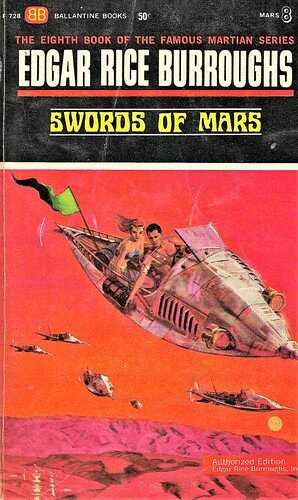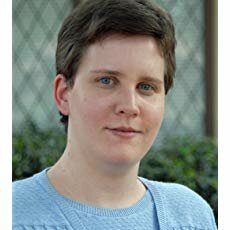I had the opportunity to interview science fiction and fantasy author Henry Vogel. He has a background in software development but a creative side you don’t often find in technical types. For example, he became a professional storyteller in 2005. A few years later, he decided to pursue is passion for writing.
Tamara Wilhite: What happened in 2012 that caused you to jump into science fiction writing?
Henry Vogel: It was a combination of things that pushed me to finally write novels, which is something I’d been interested in doing my entire life. My wife was recovering from a bone marrow transplant and having her first hip replacement surgery, and my mother had a stroke. Combine that with a full-time job and a high functioning autistic son, and it was a perfect storm of stress. I began writing as a cheap form of therapy. Instead of paying a professional to discuss my fears and feelings, I poured those same fears and feelings into imaginary worlds.
In my comic book days, I usually wrote fun, optimistic adventure stories. With my novels, I made a conscious decision to stay away from dark themes or the ever popular everything-is-a-shade-of gray in my fiction. My heroes aren’t perfect, but they are heroic. They get angry and sometimes enjoy thrashing a particularly despicable villain, but they also do the right thing and for the right reasons. I prefer likeable heroes the reader pulls for and happy endings that leave the reader satisfied. Essentially, I write the kind of science fiction I grew up reading and still enjoy reading today. Because life is too short and too precious to waste time reading or writing dreary, depressing, pointless fiction.
Tamara Wilhite: You’re up to five books in the “Scouts” series. What is it about?
Henry Vogel: The Edgar Rice Burroughs “Mars” series is one of my all-time favorites. Those books formed the foundation for the “sword & planet” or “planetary romance” fiction that gave rise to space opera. The Scout series is my modern homage to John Carter, Dejah Thoris, and their adventures on Mars. I even named my main character – David Rice – after Burroughs’ middle name.
There’s a bit of series pre-history I won’t go into, but the gist is that hundreds of colony ships, some of them slower-than-light generation ships, left Earth and the records of their destinations were lost in a cataclysm. Post-cataclysm, the Terran Federation formed the Scout Corps to track the colony ships and discover the resulting colonies. David Rice begins the series as a newly promoted Scout operating on his own for the first time in his brief career. He crash lands on a lost colony and, in true sword & planet fashion, is swept up into an adventure involving a beautiful princess, pirates, and dastardly royal machinations on a planet where airships ply the skies and a man is undressed if he doesn’t have a good sword at his side.
Essentially, I wrote the book I wanted to read but which no one was writing. I’ve kept doing that across five current Scout novels and have a sixth waiting in the wings. I’ve also written nine space operas and, once again, they’re books I wanted to read but could no longer find. Each book is a self-contained adventure, though the trilogies have overarching plots, and all but one has a dash of romance thrown in for fun.
Tamara Wilhite: Your book “The Scales of Sin and Sorrow” has nearly hit 60 chapters. What is it about, and why are you publishing it chapter by chapter on your blog?
Henry Vogel: Actually, I publish all my books chapter by chapter on my website. I do that because I’m a lazy writer. Left to myself, I’d dream about stories and characters and possibly never actually write anything. But once I announced my online, ongoing publishing plans to a handful of friends, I had to write the stories or feel as if I’d let my online readers down. My sense of responsibility won’t let me simply ignore my self-imposed deadline.
The approach also forced me to do something too few fledgling writers do – finish the first draft. We’ve all heard stories about the writer who gets so wrapped up in polishing their first chapter that they never write the second. I can’t do that because those who read my stories online expect the story to keep moving. The pace keeps me from revising anything until I finish the story.
You mentioned “chapters,” and I do refer to each post as a chapter, but when “The Scales of Sin & Sorrow” is released, it will have 13 or 14 chapters, not the 60+ that appeared online. What I call a chapter online is more like a scene in the story. I combine those into logical chapters during the editing and rewriting phase. Well, I do that now. I left things as they were in the first Scout book, so Scout’s Honor has 101 chapters, though they’re very short chapters. In contrast, the latest Scout book, Scout’s Training, has a much more reasonable 19 chapters.
My approach works for me, and I’ve written over a million words since I adopted it.
It dawns on me that I never answered the question about The Scales of Sin & Sorrow. It’s a sequel to my previous project, Fortune’s Fool. They’re set in a post-apocalyptic galaxy. Some worlds have rediscovered interstellar travel while others remain culturally and technologically at the medieval level or lower. The story follows the travels of Mark Fortune, a xeno-archaeologist whose searches pre-holocaust sites for both knowledge and plunder. In the first book, he makes the discovery of a lifetime and is thrown into an adventure that chips away at his loner attitude. Mark begins as the least heroic and most selfish of my protagonists, but both adventures force him to examine and gradually alter his motivations. I aimed for a 1930s pulp feel with the stories and mostly succeeded.
Tamara Wilhite: You said you’d won a writing contest at some point. When was this, and what work won the award?
Henry Vogel: Back in October of 2017, Liberty Island Press announced a “Heroes vs Villains” writing contest. Authors submitted stories featuring a hero or a villain. From the submissions, the Liberty Island editors selected the best hero story and the best villain story. They published both stories and invited readers to vote for their favorite. My hero story, “The Gift” went up against the winner of the villain contest. I’m afraid I don’t recall the villain story’s title or author, but the “The Gift” emerged victorious.
For those interested in reading the story, I’ve included it in an anthology I will offer for free to anyone who signs up for the mailing list I’m setting up for my website.
Tamara Wilhite: How did you get involved in the “Freedom’s Light” anthology?
Henry Vogel: The anthology contents came from authors involved in the CLFA – Conservative-Libertarian Fiction Alliance – Facebook group. Editor Matt Margolis, who designed covers for three of my books, put out the call for submissions within the group. I sent him “The Nomod,” a story I’ve always liked but never submitted anywhere for publication. I don’t think the requirements for selection were particularly onerous – we weren’t paid for our stories and all proceeds went to charity – but I shared the anthology with an excellent collection of authors, including Brad Torgersen and Nick Cole.
Tamara Wilhite: You’ve written more than a dozen novels, but you have several projects in the works, too. What are you currently working on?
Henry Vogel: My publisher, Bruce Bethke of Rampant Loon Publications, bought two stories for issues of Stupefying Stories. “Heart of Dorkness” is a rewrite of Joseph Conrad’s Heart of Darkness set at a science fiction convention, and with a D&D adventure replacing Conrad’s original African excursion. The second story is a favorite of mine, and one I include in storytelling performances for adult audiences. “Watch This!” tells of two Southern boys who break into heaven and the consequences when they end up before God.
A new story, “The Devil & the Details,” was just selected for inclusion in The Devil You Know. It’s an upcoming anthology from Critical Blast Publishing. The anthology doesn’t have an exact release date yet but should be available in the next month or two.
I don’t write many short stories, so that’s the extent of my anthology credits.
Tamara Wilhite: Is there anything you’d like to add?
Henry Vogel: To everyone who dreams of writing fiction, I say stop dreaming and start writing. Your age doesn’t matter – I was turned 57 weeks after the release of my first novel – and your writing skill doesn’t matter. The only way a writer improves is by writing. And you will improve if you do the following – finish what you write, seek unbiased feedback, and learn from that feedback. All three are vital if publishing is your goal.
Writing is a craft as well as an art. I firmly believe almost anyone can learn how to write if they simply follow those three steps. None of them are easy. Writing takes dedication. Seeking the opinions of others takes courage. Learning from feedback takes humility. But if you adhere to those three steps chances are you will succeed.
Tamara Wilhite: Thank you for speaking with me.
***
Photo by Jim Linwood 



Comments
Leave a Reply